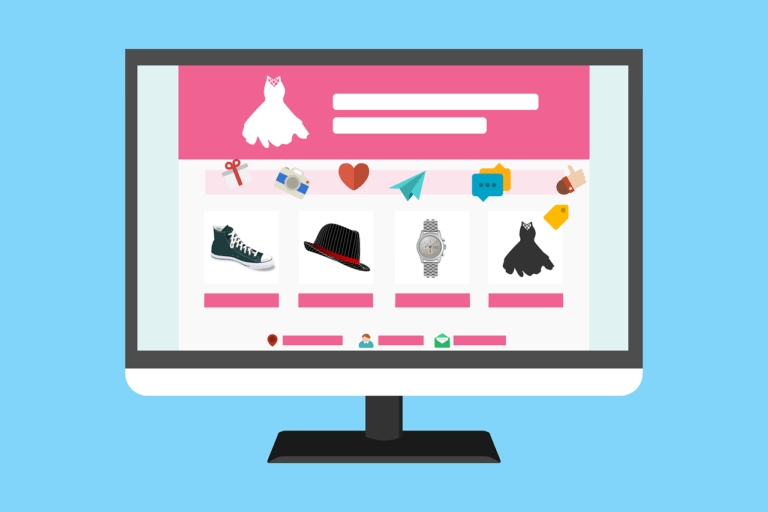Navigating the world of e-commerce requires choosing a platform that aligns with your business goals and provides the flexibility to grow. With a myriad of options available, finding the right platform can be overwhelming.
BigCommerce stands out as a powerful solution designed to cater to businesses of all sizes, offering a range of features that enhance user experience, streamline operations, and support growth.
This guide explores deep into what BigCommerce offers, its advantages, potential drawbacks, and how it compares to other leading e-commerce platforms, helping you decide if it’s the right fit for your business.
What is BigCommerce?
BigCommerce is a powerful e-commerce platform designed to help businesses create, manage, and scale their online stores. Launched in 2009, it has become a go-to platform for merchants looking for a flexible and scalable solution. BigCommerce is a Software-as-a-Service (SaaS) platform, which means businesses can build and manage their stores without worrying about hosting, software updates, or security maintenance.
The platform caters to a diverse range of industries, from fashion and electronics to health and beauty, and is suitable for businesses of all sizes. Whether you are a small startup or a large enterprise, BigCommerce provides the tools and features needed to succeed in the competitive e-commerce landscape.
Key Features of BigCommerce
BigCommerce offers a wide array of features that make it a standout choice for online merchants. Here are some of the platform’s most notable features:
1. Store Design and Customization
BigCommerce provides a rich selection of customizable templates designed to suit various industries and business needs. These templates are fully responsive, ensuring that your online store looks great on all devices, including desktops, tablets, and smartphones. The platform also includes a drag-and-drop page builder, allowing users to create and customize their store layout without needing to write code.
For those with coding skills, BigCommerce offers complete access to HTML, CSS, and JavaScript, enabling deeper customization and the creation of a truly unique storefront. This flexibility allows businesses to maintain a consistent brand image and offer a seamless shopping experience to their customers.
2. Product Management
Managing your products is straightforward with BigCommerce. The platform supports unlimited products and variants, giving you the flexibility to showcase your entire product range. Advanced inventory management tools allow you to track stock levels, manage backorders, and set up different product options, such as size, color, and material.
Additionally, BigCommerce supports the sale of digital products, making it a suitable option for businesses that offer downloadable content like eBooks, software, music, or videos. This versatility is ideal for companies looking to diversify their product offerings.
3. SEO and Marketing Tools
BigCommerce excels in providing built-in SEO (Search Engine Optimization) tools that help improve your store’s visibility in search engines. It allows for easy customization of URLs, meta titles, descriptions, and headers, and automatically generates a Google-friendly sitemap to ensure your store is well-indexed by search engines.
The platform also comes with a suite of marketing tools, including email marketing integration, social media integration, and the ability to create promotions and discount codes. These tools enable businesses to run targeted marketing campaigns, driving more traffic and increasing conversion rates.
4. Payment and Shipping Options
BigCommerce supports a wide range of payment gateways, including popular options like PayPal, Stripe, Square, and Apple Pay, providing customers with multiple payment methods. The platform is fully compliant with PCI DSS (Payment Card Industry Data Security Standard), ensuring secure transactions and protecting customer data.
In terms of shipping, BigCommerce integrates with major carriers such as UPS, FedEx, and USPS. It offers real-time shipping quotes and the ability to set up various shipping rules, flat rates, or free shipping options, giving you flexibility in meeting customer expectations and managing shipping costs effectively.
5. Mobile Optimization
As mobile shopping continues to grow, having a mobile-optimized store is essential. BigCommerce ensures that all its templates are responsive, providing a seamless shopping experience across all devices. This feature not only improves user experience but also positively impacts your store’s SEO ranking, as mobile-friendliness is a crucial factor in search engine algorithms.
6. Analytics and Reporting
BigCommerce offers robust analytics and reporting tools that provide valuable insights into your store’s performance. You can access detailed reports on sales, customer behavior, and marketing campaigns, helping you make informed decisions to optimize your business strategies. The platform also integrates with Google Analytics, allowing for even more in-depth data analysis.
7. Multi-Channel Selling
One of the standout features of BigCommerce is its ability to support multi-channel selling. The platform allows you to easily integrate your store with popular marketplaces such as Amazon, eBay, and Walmart, as well as social media platforms like Facebook, Instagram, and Pinterest. This capability enables you to reach a wider audience and increase sales without managing multiple platforms separately.
Pros and Cons of BigCommerce
Understanding the pros and cons of BigCommerce can help you decide if it’s the right platform for your e-commerce business.
Pros
- Scalability: BigCommerce is designed to grow with your business, supporting large product catalogs and high traffic volumes without compromising performance.
- User-Friendly Interface: The platform’s intuitive interface makes it easy for users, even those without technical expertise, to set up and manage their stores.
- Comprehensive Features: BigCommerce offers a wide range of features, from SEO tools to multi-channel selling capabilities, catering to various business needs.
- No Transaction Fees: Unlike some competitors, BigCommerce does not charge transaction fees, allowing you to maximize your profits.
- Security and Compliance: With PCI DSS compliance and HTTPS support, BigCommerce provides a secure shopping environment for your customers.
Cons
- Learning Curve: While the platform is user-friendly, some users may find the extensive features and customization options overwhelming at first.
- Limited Free Themes: BigCommerce offers a limited selection of free themes, and premium themes can be relatively expensive, adding to the cost of setting up your store.
- Feature Limitations on Lower Plans: Some advanced features are only available on higher-tier plans, which might be a consideration for smaller businesses with budget constraints.
BigCommerce vs. Competitors
To help you determine if BigCommerce is the right platform for your needs, let’s compare it with some of its top competitors: Shopify, WooCommerce, and Magento.
BigCommerce vs. Shopify
Both BigCommerce and Shopify are popular e-commerce platforms with a range of features designed to help businesses succeed online. While both platforms offer a user-friendly interface and a variety of themes, there are key differences:
- Customization: BigCommerce offers more advanced customization options without requiring apps, while Shopify relies heavily on apps for extended functionality.
- Multi-Channel Selling: Both platforms offer multi-channel selling capabilities, but BigCommerce provides this feature natively without additional costs.
- SEO Tools: BigCommerce provides more built-in SEO tools than Shopify, giving it an edge in terms of search engine optimization.
BigCommerce vs. WooCommerce
WooCommerce is a popular e-commerce plugin for WordPress, offering extensive customization through plugins and themes. Here’s how it compares with BigCommerce:
- Ease of Use: BigCommerce is easier to set up and manage, especially for non-technical users, while WooCommerce may require more technical knowledge and maintenance.
- Scalability: BigCommerce is a better choice for rapidly growing businesses, as it can handle high traffic and large inventories more efficiently than WooCommerce.
- Cost: WooCommerce is open-source, which means the base plugin is free, but costs can add up with hosting, plugins, and themes, whereas BigCommerce offers an all-inclusive package.
BigCommerce vs. Magento
Magento is an open-source e-commerce platform known for its flexibility and scalability. However, it is more complex compared to BigCommerce:
- User Experience: BigCommerce offers a more user-friendly experience, making it suitable for businesses without a dedicated IT team. Magento, on the other hand, requires technical expertise to manage and customize.
- Customization: While Magento offers unparalleled customization, BigCommerce provides robust out-of-the-box features that require less customization to achieve similar results.
- Security: BigCommerce, being a SaaS platform, takes care of security updates and maintenance, while Magento users must handle their security measures.
Conclusion
BigCommerce is a powerful e-commerce platform that provides a comprehensive suite of tools for businesses looking to establish or grow their online presence. Its ease of use, scalability, and robust feature set make it a strong contender for businesses of all sizes. While there are some limitations, such as the cost of premium themes and the learning curve associated with its extensive features, the platform’s benefits often outweigh these drawbacks. Whether you are a small business just starting or a large enterprise looking to scale, BigCommerce offers the tools and flexibility to help you succeed.
FAQs
1. What types of businesses is BigCommerce best suited for?
BigCommerce is suitable for a wide range of businesses, from small startups to large enterprises. Its scalability and robust feature set make it ideal for businesses that plan to grow their online presence and require a platform that can handle high traffic and large inventories.
2. Can I use my own domain name with BigCommerce?
Yes, you can use your own domain name with BigCommerce. The platform allows you to connect your existing domain or purchase a new one directly through their interface.
3. Does BigCommerce support multi-channel selling?
Absolutely. BigCommerce supports multi-channel selling, allowing you to integrate your store with popular marketplaces like Amazon, eBay, and Walmart, as well as social media platforms like Facebook and Instagram.
4. Is BigCommerce SEO-friendly?
Yes, BigCommerce is SEO-friendly. The platform includes a range of built-in SEO tools, such as customizable URLs, meta titles, descriptions, and headers, to help improve your store’s visibility on search engines.
5. How secure is BigCommerce?
BigCommerce is a highly secure platform, offering PCI DSS compliance and HTTPS support to ensure that your customers’ data is protected. The platform also handles all security updates and maintenance, providing a safe environment for online transactions.
6. Can I customize my BigCommerce store?
Yes, BigCommerce offers extensive customization options. You can use the drag-and-drop builder for basic customization or access the HTML, CSS, and JavaScript files for more advanced customizations to create a unique storefront that matches your brand’s identity.







